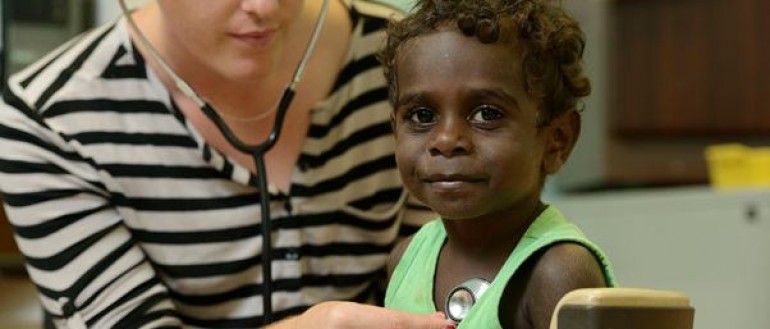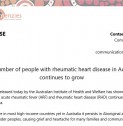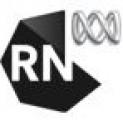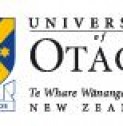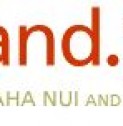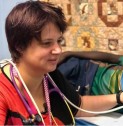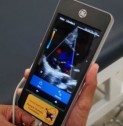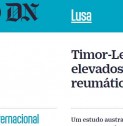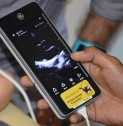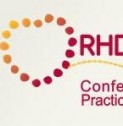Australia has one of the highest reported rates of acute rheumatic fever (ARF) and rheumatic heart disease (RHD) in the world.
Globally, there are at least 15.6 million people with RHD, and annually, over 230 000 people die from the disease. It is estimated that there are another 1.9 million people who have had ARF and 470 000 new cases are diagnosed every year. These figures are likely to be an underestimate of the true global burden of the disease.
Some of the highest rates of ARF and RHD in the world are found among Indigenous Australians (particularly across central and northern Australia), New Zealand Māori, and other Pacific Island populations. The prevalence of RHD is also high in sub-Saharan Africa, Latin America, the Indian subcontinent, the Middle East and Northern Africa.
In Australia, Aboriginal and Torres Strait Islander peoples are up to eight times more likely than other Australians to be hospitalised, and nearly 20 times more likely to die from this disease.
ARF can develop after an immunological response to group A streptococcal (Strep A) infection. If not diagnosed and treated, ARF can lead to permanent heart valve damage, a condition known as RHD. Community rates of ARF and RHD are known to reduce with improved housing, decreased household crowding, and access to appropriate health services and antibiotics to treat group A streptococcal infections and prevent recurrent ARF.
RHD is the most common worldwide cause of heart-related death in children and adults aged under 40 years. However, through simple and cost-effective strategies, RHD and associated deaths can be prevented.
Menzies researchers work with high-risk populations across Australia and the Pacific region to better understand and manage the factors that drive ARF and RHD.
Our research focus:
- To test whether a model of care designed to optimise health systems and community resources improves adherence to secondary prophylaxis for ARF
- To understand why ARF progresses to RHD in some people. Many people will experience group A streptococcus infections but only some will develop RHD. Launched in 2012, RHD Genetics is a collaborative study investigating the role genetics plays in the presence and progression of ARF and RHD
- To develop a sustainable model of detecting RHD by training local non-expert practitioners using echo-screening in remote health clinics in northern Australia and Timor-Leste. This study will provide guidance for other communities and remote health clinics, providing information on what may help and what may hinder implementation.
- To determine the impact a diagnosis of RHD has on the lives of young people living in communities
- To quantify the level of heart inflammation in First Nations people diagnosed with AFT and RHD
- To provide an evidence base on which to improve clinical care and health outcomes for women with RHD in pregnancy and for their babies
- To find markers in the blood that can be used to rapidly and accurately diagnose ARF, so that people can receive treatment as soon as possible
- Supporting RHD Guideline updates in Australia and Timor-Leste
- To provide direct program support and conduct research under the World Heart Federation RHD Pacific and International Program, including:
- RHD genetics study in Fiji and New Caledonia
- A BPG adherence study in Fiji
- A cost analysis of burden of RHD in New Caledonia and Fiji
- An evaluation of the ASAP RHD program in South Africa and Ethiopia
- Development of an RHD train the trainer module for international and regional Pacific use
- Collaboration and sharing of resources with many other countries in Asia, Africa and South America.
RHD Guidelines:
Key Staff:
- Professor Anna Ralph
- Professor Bart Currie
- Sara Noonan
- Associate Professor Joshua Francis
- Dr Jennifer Yan
- Dr James Marangou
- Meghan Bailey
- Jade Neave
- Alex Kaethner
- Alice Mitchell
- Alex Whelan
- Anferida Monteiro
- Maria Tanesi
Current Projects:
- TREAT SC: A Randomised, Double-Blinded, Placebo-Controlled Trial of Early, Short Course Oral Dexamethasone for the Treatment of Sydenham’s Chorea in Children
- The Australian guideline for prevention, diagnosis and management of acute rheumatic fever and rheumatic heart disease
- The Non-Expert Acquisition and Remote Expert Review of Screening echocardiography images from Child health and AnteNatal clinics (NEARER SCAN/LENO BESIK) study - MRFF Cardiovascular health Grant
- Social and Emotional wellbeing of Aboriginal and Torres Strait Islander children with Acute Rheumatic Fever and Rheumatic Heart disease: Beyond the physical scars
- Searching for a Technology-Driven Acute Rheumatic Fever Test' (START)
- STopping Acute Rheumatic Fever Infections to Strengthen Health (STARFISH)
- Early detection and treatment of rheumatic heart disease in high risk communities using community led approaches for active case finding, education and engagement in care.
- Acute Rheumatic Fever Diagnosis Collaborative (ARC) study
- AIRHD: Artificial Intelligence for automated echocardiography screening of Rheumatic Heart Disease in remote communities: development and clinical evaluation.
- Quantifying myocardial inflammation in acute rheumatic fever and rheumatic heart disease
Past Projects:
- SP Plus: An expanded model of secondary prevention for individuals with rheumatic fever or rheumatic heart disease and their families
- Pedriño and Recardina Studies
- On Track Watch (OTW): ‘A Grassroots Rheumatic Heart Disease Initiative in the Northern Territory’
- Evaluating the genetic contribution to RHD pathogenesis in Australian Aboriginal and Torres Strait Islander communities
- Identifying a unique inflammatory signature in ARF – a pilot study
- Improving delivery of secondary prophylaxis for RHD: a stepped-wedge, community-randomised trial
- RHD in pregnancy
- Analysis of mortality trends for rheumatic heart disease (RHD) and rheumatic fever in Indigenous and non-Indigenous Australians
- Echocardiographic screening for RHD by nurses in Fiji – testing of a training module
- The global burden of disease study 2010: RHD writing group
- gECHO study (RHD screening study)
- Reducing rheumatic fever and controlling RHD in Pacific Island Nations
Click here to view rheumatic heart disease publications in PubMed.
A suite of resources based on the 2020 Australian guideline for the prevention, diagnosis and management of ARF and RHD (3rd edition) are available at the RHDAustralia website, including professional e-learning modules and smartphone applications.
For the latest articles click here to be taken to the RHDAustralia news website.
-

ABC Katherine | Remote Laundries pilot in Barunga reduced scabies 'rapidly', now there are plans to expand
When Khalia Bush found her eldest daughter had developed a life-threatening heart condition, washing became a major part of her life.
-
The number of people with rheumatic heart disease in Australia continues to grow
A report released today by the Australian Institute of Health and Welfare has shown that the burden of acute rheumatic fever (ARF) and rheumatic heart disease (RHD) continues to grow in Australia.
-
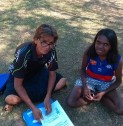
Working with communities to end rheumatic heart disease
Did you know that Aboriginal and Torres Strait Islander people live with rheumatic heart disease (RHD) at rates 60 times higher than non-Indigenous Australians? RHD is permanent heart damage, resulting from a throat or skin infection caused by Group A...
-
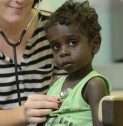
InSight+ | "Our children don't have a future": the burden of RHD
THE mayor of a remote Aboriginal community in Arnhem Land has said the town’s children “don’t have a future” unless governments boost their investment in tackling the social determinants driving one of the world’s highest rates of rheumatic heart disease (RHD).
-
Active screening needed for rheumatic heart disease in the NT
The high burden of rheumatic heart disease among Aboriginal and Torres Strait Islander people requires more active case finding and echocardiographic screening to detect undiagnosed cases, according to Australian experts
-

Five medical research projects recognised in the Northern Territory
Five researchers based at Menzies have received recognition in the form of Investigator Grants from the NHMRC and the MRFF.
-
The fight against rheumatic heart disease continues into the new decade
Health experts from across Australia and New Zealand have teamed up with cultural advisors to address what they say is the greatest cardiovascular inequality between Indigenous and non-Indigenous Australians.
-
Partnership provides vital service to Maningrida
The provision of Orange Sky Australia free laundry facilities comes about following a study by Menzies School of Health Research.
-

Rheumatic heart disease discussed at national conference
Menzies School of Health Research senior research fellow Josh Francis said there was positive news when it came to RHD “in the sense that there’s a really good plan coming together”.
-
Top award for Noongar woman with nursing in her blood
The Senior | Vicki is senior cultural advisor with Rheumatic Heart Disease Australia, which is based at Darwin's Menzies School of Health Research.
-
Heartfelt song beats back infection
The song debuted at the Barunga Festival, after a collaboration between Skinnyfish Music, the Bupa Health Foundation, Telethon Kids and the Menzies School of Health Research.
-
Catchy new song could save thousands of children from deadly RHD
Indigenous children in Barunga have put together a catchy song in the hope it will save others from a crippling disease killing thousands.
-
COAG Health Council | Communiqué 8 March 2019
The Federal, state and territory Health Ministers met in Adelaide at the COAG Health Council to discuss a range of national health issues.
-
RN Breakfast | Rheumatic heart disease on COAG health agenda
The Federal Government will outline a national plan to eradicate rheumatic heart disease at next week's COAG meeting of health ministers.
-
RN Breakfast | Rheumatic heart disease on COAG health agenda
The Federal Government will outline a national plan to eradicate rheumatic heart disease at next week's COAG meeting of health ministers.
-

Research offers hope for rheumatic fever sufferers
Northern Territory data has been used to prove that timely treatment for people with rheumatic fever reduces the risk of recurring illness and death.
-
Words from Arnhem land: Aboriginal health messages need to be made with us rather than for us
When researchers from Menzies School of Health Research starting working with us on rheumatic heart disease, we explained that the children needed better nutrition.
-
Media Release|True burden of rheumatic fever in NZ currently underestimated, new research reveals
Media Release | University of Otago
-
True burden of rheumatic fever in NZ underestimated
The joint study by researchers from the University of Otago, ESR, University of Auckland and the Menzies School of Health Research, Australia.
-
Wire | RHD SCREENING CONTINUES
Health professionals and Maningrida stakeholders have come together to continue screenings of rheumatic heart disease (RHD).
-
Wire | RHD SCREENING CONTINUES
Health professionals and Maningrida stakeholders have come together to continue screenings of rheumatic heart disease (RHD).
-
Smart phones to help with remote area heart sickness
Dr Alice Mitchell is helping in the fight against one of the leading causes of death among young Indigenous people
-
ABC | Rheumatic heart disease going undiagnosed by NT's fly-in doctors, cardiologist warns
The Northern Territory is home to some of the highest known rates of rheumatic heart disease in the world, but the transient nature of the region's medical practitioners could be hindering the fight to stop it.
-
Arnhem Land children suffer world's highest known rates of rheumatic heart disease
In a remote Indigenous community of 3,000 people, researchers have discovered the highest known rates of rheumatic heart disease in the world, where children as young as four have died from the entirely preventable condition.
-
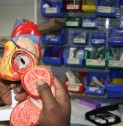
Preventing RHD through community-driven activities
Health activities driven by remote Indigenous communities may be key to the sustainable and successful treatment and prevention of a potentially fatal disease, a study has found.
-

Building genomics expertise in the NT
Menzies is investing and developing expertise in the emerging research area of genome sequencing. In the past year, we took the lead in a number of national and international collaborative programs investigating the genomics of tropical pathogens, and...
-
Timorese Government prepares plan to prevent and combat rheumatic heart disease
The Timorese Ministry of Health is designing a prevention and diagnosis plan, part of the Family Health program, to combat rheumatic fever and rheumatic heart disease, the ministry's minister announced today.
-

Saving Lives of remote children | NT News
Darwin researchers have uncovered alarming rates of rheumatic heart disease in East Timorese children.
-
Cardiologists identify alarming levels of rheumatic heart disease in Timor-Leste
Research by Australian cardiologists has found the rates of rheumatic heart disease (RHD) in Timor-Leste are among the highest in the world. The landmark study was published in the Medical Journal of Australia.
-

Sharing a Heartbeat: Rheumatic heart disease movie released in Darwin
A push for more awareness around the effects of rheumatic heart disease on pregnancy has led to a film developed, written, and directed by Australian Indigenous women.
-
Rheumatic heart disease program in East Timor 'saving lives' with 'simple' penicillin injections
Australian doctors are working with East Timorese health workers to screen and treat children and young people with the illness, using methods similar to those used in Australia.
-
Rheumatic heart disease: Preventable illness in Indigenous communities 'a national failure', AMA says
The Australian Medical Association has singled out a preventable disease caused by impoverished living conditions and untreated infections as Australia's "national failure".
-

Launch of new e-learning modules to target world’s highest rate of rheumatic heart disease
RHDAustralia will launch 15 new ‘clinician e-learning modules’ at a seminar in Darwin as part of Australia’s Rheumatic Fever Strategy to tackle the world’s highest recorded rate of acute rheumatic fever and rheumatic heart disease.
-

Seminar to reduce world’s highest rate of rheumatic heart disease in children
RHDAustralia will host a free seminar in Cairns tonight as part of Australia’s Rheumatic Fever Strategy to reduce the world’s highest recorded rate of acute rheumatic fever.
-
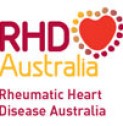
Forum to forge path to end rheumatic heart disease
200 international leading experts and advocates for rheumatic heart disease will converge at the 3rd Global Rheumatic Heart Disease Forum in Melbourne next week.
-
Call to arms to save children from rheumatic heart disease
A leading paediatric cardiologist has emphasised the need to prevent RHD in Indigenous children to avoid premature death, cardiac surgery and stroke to allow them to live a fulfilling life.
-
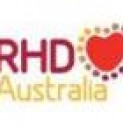
Beating rheumatic heart disease: Experts converge in Darwin
Experts from around the country will meet in Darwin today at the RHD Australia Conference 2013: Practice and Culture to strengthen Australia’s fight to prevent rheumatic heart disease.
-
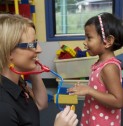
Preventable disease leaves 13 year old with mechanical heart failure
RHD Australia will mark World Heart Day on 29 September by reminding people that rheumatic heart disease is preventable. Diagnosed at the age of seven, Carlisa Willika from the Werenbun community north of Katherine in the Northern Territory has lived with rheumatic heart disease for five years.

